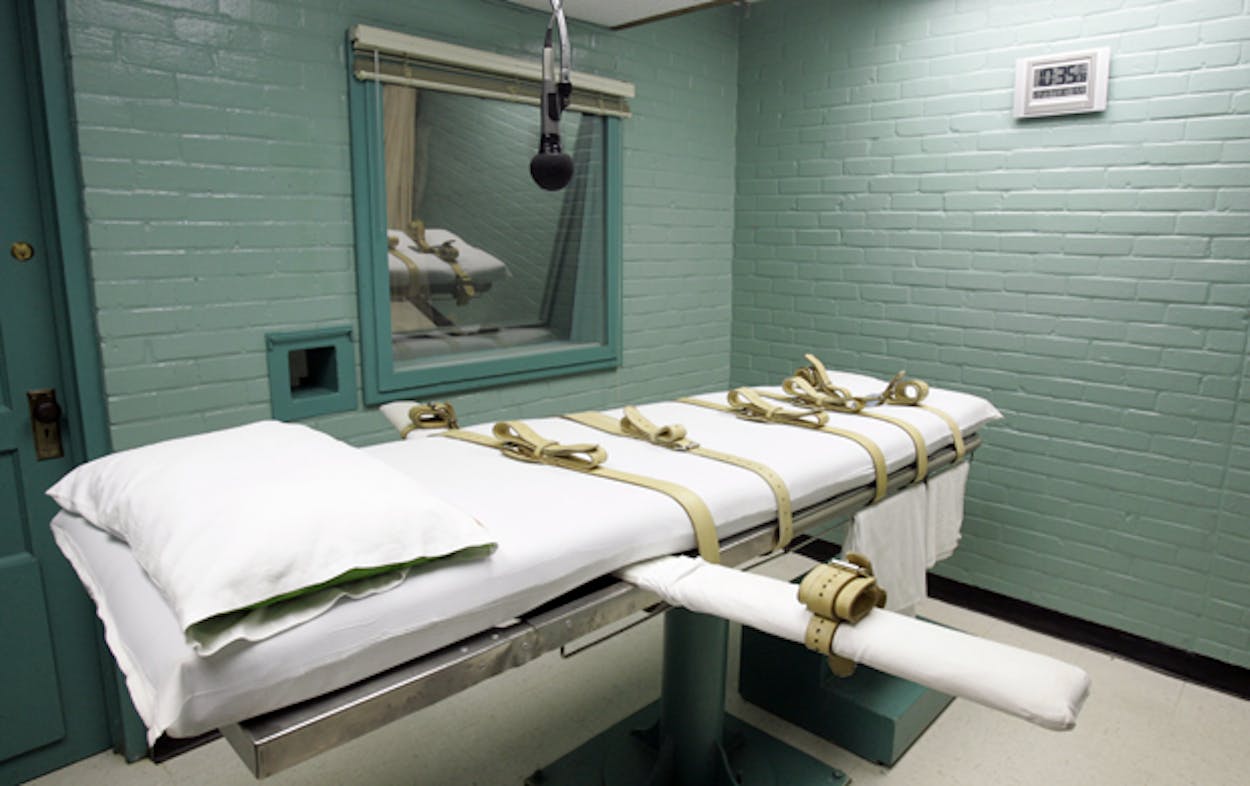 On Wednesday night, Texas executed Bobby Lee Hines for murdering his neighbor with an ice pick in 1991, when he was nineteen. Hines was the eleventh man the state executed this year.
On Wednesday night, Texas executed Bobby Lee Hines for murdering his neighbor with an ice pick in 1991, when he was nineteen. Hines was the eleventh man the state executed this year.The results of DNA testing released in September confirmed that Hines was linked to the death of Michelle Wendy Haupt, 26, in her Carrollton apartment. Hines had previously been scheduled to die in May, but his execution was postponed at request of the Dallas County District Attorney’s office pending the results of testing on DNA found on Haupt’s fingernails.
Hines’ roommate was a maintenance man at the complex and Hines used his master key to gain entry to Haupt’s neighboring apartment early in the morning on October 20, 1991, according to the AP. Neighbors overheard Haupt’s screams but the police couldn’t figure where they were emanating from. Her lifeless body was discovered later that morning.
Hines was arrested the day of the murder, after homicide investigators observed scratches on his neck and found items belonging to Haupt in his apartment and in his pocket, the AP reported. Detectives linked a fingerprint and bloody handprint found in Haupt’s apartment to Hines.
Hines was convicted in 1992. His lawyers argued that he was mentally impaired, an argument that postponed his first execution date, slated for 2003. One of his trial attorneys, William Hughey, told the AP that Hines’ case was one “where it was clear his childhood had significant impact as to who he was and how he ended up.” Last week, the Texas Court of Criminal Appeals rejected an appeal in which his lawyers argued his history of abuse had not been thoroughly investigated by his previous lawyers.
Hines, 40, used his final words to apologize to Haupt’s family. “I know that I took somebody special from y’all. I know it wasn’t right, it was wrong. I wish I could give it back, but I know I can’t,” he said. “I wish there was something I could do.”
Harold Haupt, Michelle’s father, watched the execution through a window in the observation room.
“Bobby Hines paid the ultimate price, a life for a life, and that’s the good news,” Haupt said. “The bad news is it took 21 years, a lot of taxpayer money and all he did was go to sleep. He didn’t suffer like my daughter did. He got like a forever sleeping pill.”
The loss of his daughter is, he said, “like a backache, it never goes away. It’s always there.”
Five other executions are scheduled for this year.








